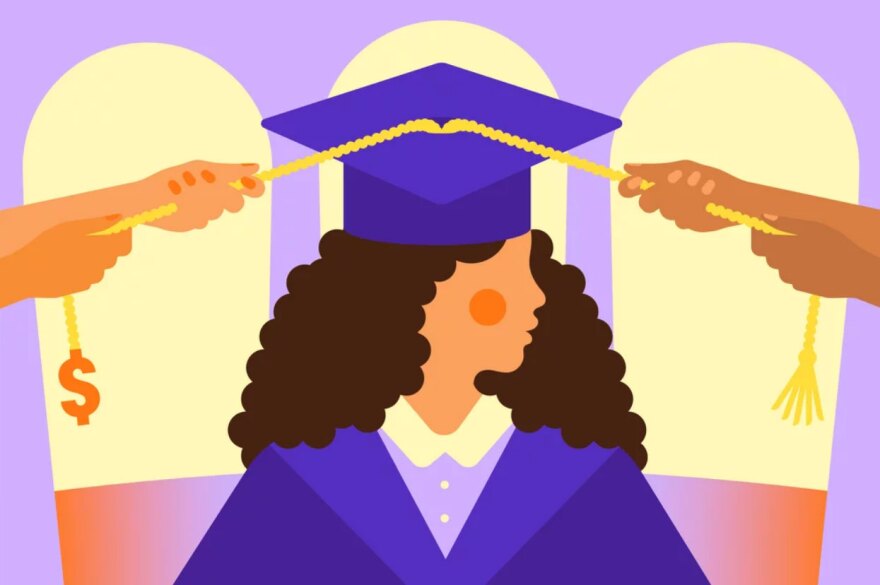The number of federal student loan borrowers in the United States has increased 13.5% in the last 10 years — from 38.3 million in 2012 to 43.5 million in 2022, according to the latest data from Federal Student Aid. Highly criticized and debated federal student loan programs have hardly changed since their introduction in 1957, but the students and families seeking aid today — and struggling to make payments — were not the original intended recipients.
The first federal student aid program in the United States, the National Defense Education Act, was signed by President Dwight D. Eisenhower in 1958 — six years before the Civil Rights Act federally ended Jim Crow laws across the nation. The Higher Education Act of 1965, signed by President Lyndon B. Johnson, followed the Civil Rights Act, and while codified into law, American citizens and lawmakers still struggled with equality.
“We're talking mid-1950s, early 1960s, at a time when the country still had not reckoned with a lot of the racial inequalities, legally, that were on the books,” Nick Hillman, professor in the School of Education at the University of Wisconsin-Madison, said on Thursday’s St. Louis on the Air. “Public colleges were still highly segregated on racial and ethnic lines. They still are today, but it was legally sanctioned at that time. It's an artifact of an era … and a huge evolution into a civil rights era that the student loan program was created.”
Federal debt data shows that Black Americans have on average more student loan debt than other racial groups. Researchers believe this is due to racial wage gaps, lack of generational wealth and first-generation college student status.
Hillman, whose research looks at the ways policy, race and geography play a role in college debt, has his theories as well. He said, “People of color, Black men and Black women in particular, have consistently been disenfranchised by the lending system, not only needing to borrow more money to go to college, but then in the labor force, [they] don't have the same kind of return on that investment, even for the same degrees, and therefore don't have the capacity to repay their loans.”
Hillman posited that since there are more middle- and upper-class white student loan borrowers experiencing the pressure of repayment, there are more conversations in the Capitol on federal student loan forgiveness.
“And we're in a very different era now, where I think public policymakers are taking proactive stances and trying to dismantle those systems of inequality that have lasted for 65 years or more.”
To hear more about federal student loan policy, research and personal stories from two St. Louis families on their experience with generational debt, listen to St. Louis on the Air on Apple Podcast, Spotify, Google Podcast, Stitcher, or by clicking the play button below.
“St. Louis on the Air” brings you the stories of St. Louis and the people who live, work and create in our region. The show is produced by Miya Norfleet, Emily Woodbury, Danny Wicentowski, Elaine Cha and Alex Heuer. Avery Rogers is our production assistant. The audio engineer is Aaron Doerr. Send questions and comments about this story to talk@stlpr.org.






